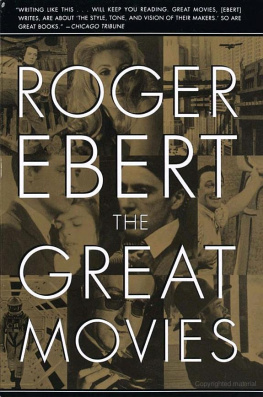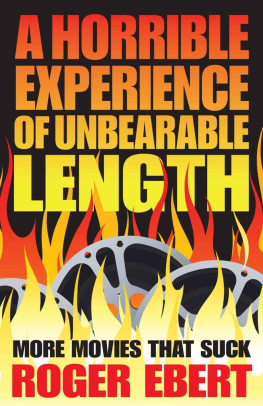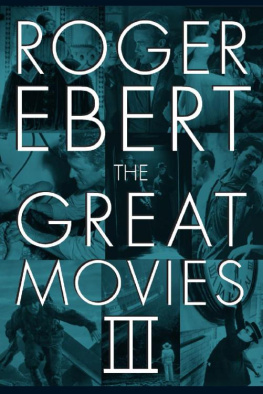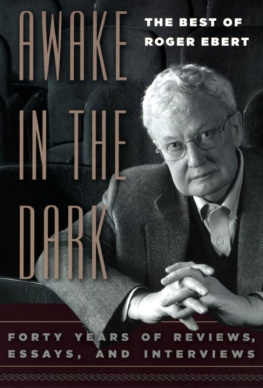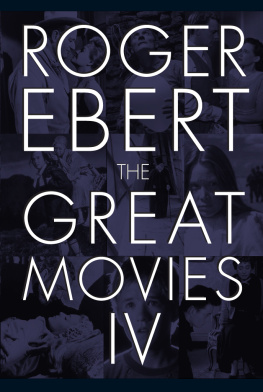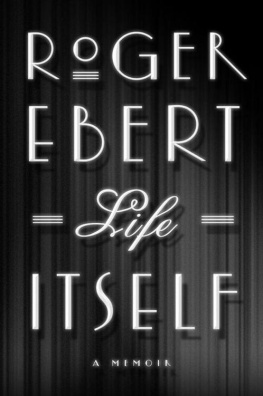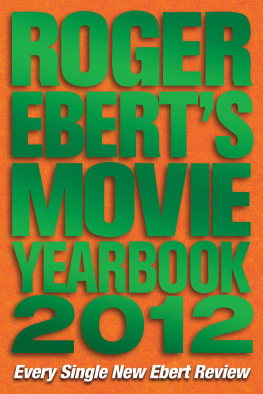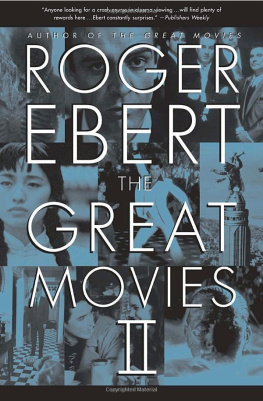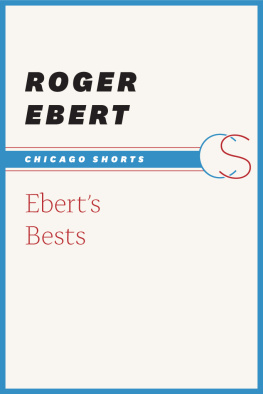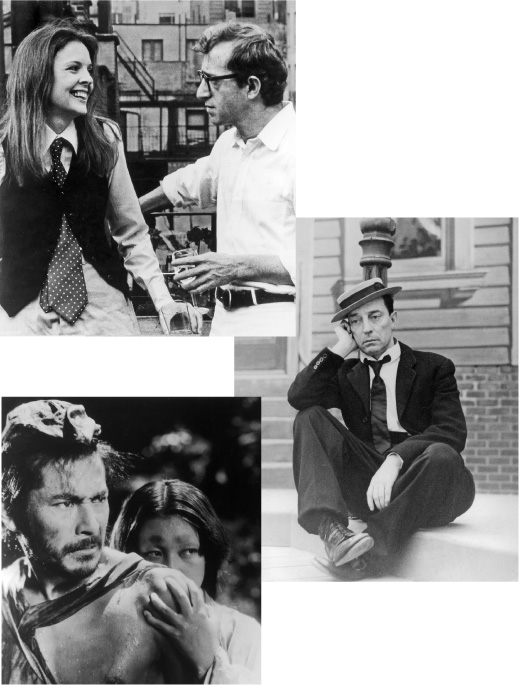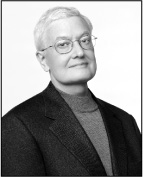Roger Ebert - The Great Movies II
Here you can read online Roger Ebert - The Great Movies II full text of the book (entire story) in english for free. Download pdf and epub, get meaning, cover and reviews about this ebook. year: 2008, publisher: Crown Archetype, genre: Art. Description of the work, (preface) as well as reviews are available. Best literature library LitArk.com created for fans of good reading and offers a wide selection of genres:
Romance novel
Science fiction
Adventure
Detective
Science
History
Home and family
Prose
Art
Politics
Computer
Non-fiction
Religion
Business
Children
Humor
Choose a favorite category and find really read worthwhile books. Enjoy immersion in the world of imagination, feel the emotions of the characters or learn something new for yourself, make an fascinating discovery.

- Book:The Great Movies II
- Author:
- Publisher:Crown Archetype
- Genre:
- Year:2008
- Rating:3 / 5
- Favourites:Add to favourites
- Your mark:
The Great Movies II: summary, description and annotation
We offer to read an annotation, description, summary or preface (depends on what the author of the book "The Great Movies II" wrote himself). If you haven't found the necessary information about the book — write in the comments, we will try to find it.
Continuing the pitch-perfect critiques begun in The Great Movies, Roger Eberts The Great Movies II collects 100 additional essays, each one of them a gem of critical appreciation and an amalgam of love, analysis, and history that will send readers back to films with a fresh set of eyes and renewed enthusiasmor perhaps to an avid first-time viewing. Neither a snob nor a shill, Ebert manages in these essays to combine a truly populist appreciation for todays most important form of popular art with a scholars erudition and depth of knowledge and a sure aesthetic sense. Once again wonderfully enhanced by stills selected by Mary Corliss, former film curator at the Museum of Modern Art, The Great Movies II is a treasure trove for film lovers of all persuasions, an unrivaled guide for viewers, and a book to return to again and again.
Films featured in The Great Movies II
12 Angry Men The Adventures of Robin Hood Alien Amadeus Amarcord Annie Hall Au Hasard, Balthazar The Bank Dick Beat the Devil Being There The Big Heat The Birth of a Nation The Blue Kite Bob le Flambeur Breathless The Bridge on the River Kwai Bring Me the Head of Alfredo Garca Buster Keaton Children of Paradise A Christmas Story The Color Purple The Conversation Cries and Whispers The Discreet Charm of the Bourgeoisie Dont Look Now The Earrings of Madame de . . . The Fall of the House of Usher The Firemens Ball Five Easy Pieces Goldfinger The Good, the Bad and the Ugly Goodfellas The Gospel According to Matthew The Grapes of Wrath Grave of the Fireflies Great Expectations House of Games The Hustler In Cold Blood Jaws Jules and Jim Kieslowskis Three Colors Trilogy Kind Hearts and Coronets King Kong The Last Laugh Laura Leaving Las Vegas Le Boucher The Leopard The Life and Death of Colonel Blimp The Manchurian Candidate The Man Who Laughs Mean Streets Mon Oncle Moonstruck The Music Room My Dinner with Andre My Neighbor Totoro Nights of Cabiria One Flew Over the Cuckoos Nest Orpheus Paris, Texas Patton Picnic at Hanging Rock Planes, Trains and Automobiles The Producers Raiders of the Lost Ark Raise the Red Lantern Ran Rashomon Rear Window Rififi The Right Stuff Romeo and Juliet The Rules of the Game Saturday Night Fever Say Anything Scarface The Searchers Shane Snow White and the Seven Dwarfs Solaris Strangers on a Train Stroszek A Sunday in the Country Sunrise A Tale of Winter The Thin Man This Is Spinal Tap Tokyo Story Touchez Pas au Grisbi Touch of Evil The Treasure of the Sierra Madre Ugetsu Umberto D Unforgiven Victim Walkabout West Side Story Yankee Doodle Dandy
Roger Ebert: author's other books
Who wrote The Great Movies II? Find out the surname, the name of the author of the book and a list of all author's works by series.

